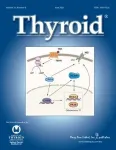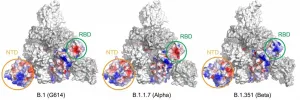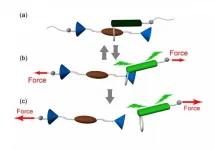(Press-News.org) When Winter Storm Uri hit, many Texans lost power from February 14-20, resulting in losses of lives and economic activity, and damages to their homes that for some are still not completely repaired. Now, four months later as demand for electricity has increased at the start of the summer amid tight supply, Texans continue to prioritize improvements to the power grid, albeit with doubt as to whether the Texas Legislature and Governor can get the job done.
In a survey by the Hobby School of Public Affairs and UH Energy at the University of Houston fielded between May 13-24, 1,500 individuals in Texas aged 18 and older responded to a series of questions regarding their experience during Winter Storm Uri and their evaluation of policy proposals toward protecting the Texas electric grid from severe weather events in the future.
"Winter Storm Uri was a massive event, with widespread impact across the state" said Pablo M. Pinto, the principal investigator who serves as associate professor and director of the Center for Public Policy at the University of Houston's Hobby School of Public Affairs.
Two-thirds of those surveyed lost power following Winter Storm Uri, while roughly 30% of those surveyed sustained damage to their home. Additionally, the bulk of power outages for sustained periods of time were clustered near larger urban centers in Texas.
Larger urban centers had no power for more than 30 hours in several zip codes. According to the survey, in the Houston area these zip codes were more clustered than the other large metro-areas in Texas.
The impact of the February storm is abundantly clear, but Texans' confidence in the ability of their state government to prevent another incident like this from repeating itself is less clear.
"Three months after the storm, Texans remained frustrated and blamed government officers, power generators and natural gas producers for the power outages," Pinto said. "They signal this frustration in their demand that energy producers and the Texas governments, not consumers, should bear the costs of retrofitting the Texas grid to withstand extreme weather events, at least in the short term."
Roughly 40% of respondents disagreed that the Texas state government will adequately tackle issues related to the electric grid. A partisan and age divide emerged within this result, namely that Republicans agreed more than Democrats and Independents, as did respondents older than 65 years old.
"A salient concern among Texans is having access to a reliable supply of electric power, which means a power system to provide uninterrupted service at an acceptable price," said Sunny Wong, professor at the UH Hobby School of Public Affairs and one of the principal investigators of the study.
The survey showed a correlation between age and disapproval of unreliable electric service. Of those aged 45-65 years old and older than, 48% and 53%, respectively, agreed that it is never acceptable for the power to go out.
Despite some doubt, eligible voters across party lines believe that wind, solar and other renewable energy sources will make a substantial contribution to reliable and secure electricity supply in Texas in the future. Sun or solar power accounted for 56.3% of surveyed respondents selected sun or solar power as a likely to make a substantial contribution, followed by wind power at 54%. The greatest support for renewables came from ages 18-29 at 69%.
"Even among Republicans, who had the lowest level of support compared to Democrats and Independents, 42% still agreed that solar power would make a substantial contribution," said Gail Buttorff, Co-Director, Survey Research Institute and Assistant Instructional Professor, at the UH Hobby School of Public Affairs and co-principal investigator.
"Younger respondents are much more likely to believe that climate change is happening, though a majority of respondents believe it is happening across age groups. 91% of respondents aged 18-29 believe climate change is happening compared to 76%, 73%, and 60% in the three older age groups."
With so many affected by the storm in February 2021 and the recent request by ERCOT to conserve energy in light of supply tightness juxtaposed by increased demand for electricity to cool homes, Texans continue to keep the power grid at the forefront of their minds.
Senate Bills 2 and 3 were passed by the Texas Legislature in an effort to oversee the appointment of the Public Utility Commission of Texas and of Electric Reliability Council of Texas (ERCOT), as well as require the weatherization of some of the industry's and infrastructure. These both fall in line with voter values, which point to reliability (40%) as a top priority, followed by cost (26%). Weatherization and winterization of the electricity system also emerged as top policy preference among respondents.
"Although respondents preferred not to see the price of electricity increase, they realize that reliable access to electricity will require major investments and regulatory changes in the long run" said Ramanan Krishnamoorti, Chief Energy Officer at the University of Houston and Professor of Chemical and Biomolecular Engineering, who was one of the leaders of the study. "When offered a menu of investments and policy interventions, respondents revealed their willingness to pay modest increases in electricity prices to shorten power."
Time will tell whether legislation passed in the Spring will satiate Texas voters' demands for more reliable and affordable electricity. One point is certain, a majority of surveyed voters have pointed to renewables as a preferred path forward in Texas for diversifying the energy mix and improving reliable and sustainable electricity. Texas is the leading state in wind power already and among the top leaders in solar, and it appears Texas voters are in agreement to continue leading the pack.
INFORMATION:
BOSTON - At the recent 2021 Annual Scientific Sessions of the American Diabetes Association, researchers from Massachusetts General Hospital (MGH) presented positive updates on their trials of the bacillus Calmette-Guérin (BCG) vaccine to safely and significantly lower blood sugars.
In type 1 diabetes, an autoimmune disease which currently has no cure, T cells attack the pancreas and destroy its ability to create insulin, a hormone vital in allowing glucose to enter cells to produce energy. In prior work, Denise Faustman, MD, PhD, director ...
A new study by UC Davis researchers confirms the low likelihood that SARS-CoV-2 contamination on hospital surfaces is infectious. END ...
Scientists from the University of Michigan have developed an innovative way to use NASA satellite data to track the movement of tiny pieces of plastic in the ocean.
Microplastics form when plastic trash in the ocean breaks down from the sun's rays and the motion of ocean waves. These small flecks of plastic are harmful to marine organisms and ecosystems. Microplastics can be carried hundreds or thousands of miles away from the source by ocean currents, making it difficult to track and remove them. Currently, the main source of information about the location ...
New Rochelle, NY, June 24, 2021—The American Thyroid Association, the European Association of Nuclear Medicine, the European Thyroid Association, and the Society of Nuclear Medicine and Molecular Imaging released a joint statement on three key topics addressing controversies in thyroid cancer care. The joint statement is published in the peer-reviewed journal Thyroid®, the official journal of the American Thyroid Association® (ATA®).Click here to read the statement now.
An inter-societal working group addressed the current controversies and evolving concepts in three main areas: peri-operative risk stratification; the role of diagnostic radioactive iodine ...
Toronto, ON - Despite research showing associations between anabolic steroid use and criminal offending, the possibility of a similar association between legal performance-enhancing substance use, such as creatine, and criminal offending remained unknown. A new study published online in the journal Drug and Alcohol Dependence now shows that both forms of performance-enhancing substance use is longitudinally associated with criminal offending among U.S. adults.
The study, which analyzed a sample of over 9,000 U.S. participants from the National Longitudinal Study ...
Liza Makowski, PhD, professor in the Department of Medicine and the UTHSC Center for Cancer Research, has long been interested in how the immune system is altered by obesity and how this impacts cancer risk and treatment.
"Obesity is complex, because it can cause both inflammation and activate counter-inflammation pathways leading to immunosuppression," Dr. Makowski said. "How obesity impacts cancer treatments is understudied."
Obese patients with breast cancer often have worse outcomes than non-obese patients. However, exciting developments are being made in other cancers that may also hold promise for treating breast cancer. In studies of ...
"Fit for 55": under this heading, the EU Commission will specify the implementation of the European Green Deal on 14 July. This refers to the more ambitious climate policy announced, with 55 instead of 40 percent emission reduction by 2030 (relative to 1990), and net-zero emissions in 2050. Coordination between the 27 EU states is expected to be difficult since unanimity is usually required here for sweeping changes. An economic model study by the Berlin-based climate research institute MCC (Mercator Research Institute on Global Commons and Climate Change) and the Potsdam Institute for Climate Impact Research (PIK) examines how to achieve good results under such conditions. The study has just been published in the renowned Journal of Environmental ...
New SARS-CoV-2 variants are spreading rapidly, and there are fears that current COVID-19 vaccines won't protect against them. The latest in a series of structural studies of the SARS-CoV-2 variants' "spike" protein, led by Bing Chen, PhD, at Boston Children's Hospital, reveals new properties of the Alpha (formerly U.K.) and Beta (formerly South Africa) variants. Of note, it suggests that current vaccines may be less effective against the Beta variant.
Spike proteins, on the surface of SARS CoV-2, are what enable the virus to attach to and enter our cells, and all current vaccines are directed against them. The new study, published in Science on June 24, used cryo-electron microscopy (cryo-EM) ...
LA JOLLA, CA--Researchers at La Jolla Institute for Immunology (LJI) have shed light on a process in immune cells that may explain why some people develop cardiovascular diseases.
Their research, published recently in Genome Biology, shows the key role that TET enzymes play in keeping immune cells on a healthy track as they mature. The scientists found that other enzymes do play a role in this process--but TET enzymes do the heavy lifting.
"If we can figure out what's going on with these enzymes, that could be important for controlling cardiovascular disease," ...
Scientists at Tokyo Institute of Technology design polymers infused with a stress-sensitive molecular unit that respond to external forces by switching on their fluorescence. The researchers demonstrate the fluorescence to be dependent on the magnitude of force and show that it is possible to detect both, reversible and irreversible polymer deformations, opening the door to the exploration of new force regimes in polymers.
Besides causing physical motion, mechanical forces can drive chemical changes in controlled and productive ways, allowing for desirable material properties. One way to go about this is by introducing a so-called mechanophore ...





